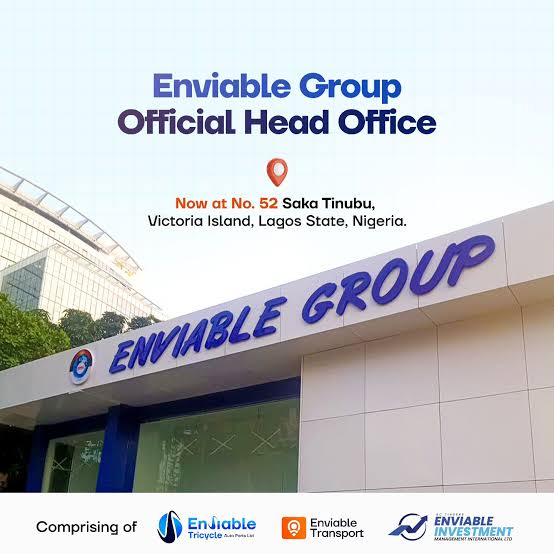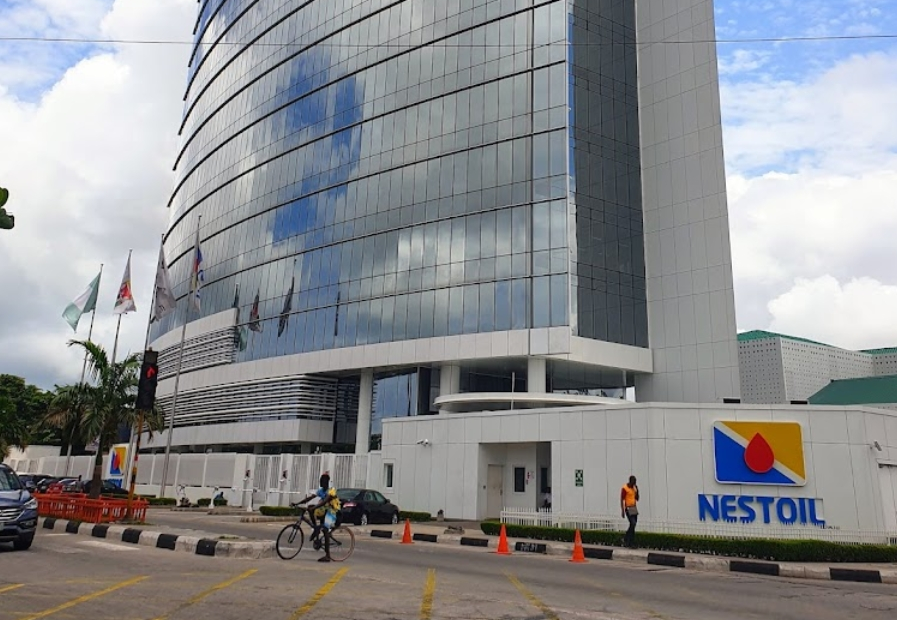
Security operatives on Tuesday sealed off the corporate headquarters of Nestoil Limited on Victoria Island, Lagos, following a court order authorising the takeover of the company’s assets over an alleged debt exceeding $1 billion.
The enforcement action came after the Federal High Court in Lagos, presided over by Justice D. I. Dipeolu, issued a Mareva injunction on October 22, 2025, empowering First Trustees and its subsidiary, FBNQuest Merchant Bank, to assume control of Nestoil’s assets and those of its affiliates and promoters.
In the landmark ruling, Justice Dipeolu granted the injunction against Nestoil Limited, its affiliate Neconde Energy Limited, and the company’s principal promoters — Dr. Ernest Azudialu-Obiejesi and Mrs. Nnenna Obiejesi.
Related posts:
- Court orders permanent forfeiture of $49,700 recovered from former INEC REC, Dr. Nura Ali
- IGP Orders Nationwide Arrest of Police Officers Escorting VIPs After Presidential Directive
- Court Summons Wike in N40 Billion Defamation Suit Filed by Tonye Cole
- Nigeria’s debt climbs to ₦152.4 trillion – DMO raises fresh concerns over borrowing trend
A Mareva injunction is a legal order that freezes a defendant’s assets to prevent them from being dissipated before the conclusion of a trial. The order effectively places all identified assets of the company and its promoters under receivership until the resolution of the substantive case.
The injunction also extended to several financial institutions and companies linked to the defendants, all of whom were directed to comply with the court’s freezing order.
Those listed include:
Citibank Limited, Central Securities and Clearing Systems Plc, Fidelity Bank Plc, Guaranty Trust Bank Plc, Globus Bank Limited, Keystone Bank Limited, Opay Limited, Polaris Bank Limited, Providus Bank Limited, and Stanbic IBTC Bank Plc.
Others are Standard Chartered Bank Nigeria, Sterling Bank Plc, Titan Trust Bank Limited, Unity Bank Plc, Wema Bank Plc, Gobowen Exploration and Production Limited, Hammakopp Consortium Limited, Krawcod Properties Limited, Santa Spring Oil and Gas Limited, Marine & Ocean Infinity Nigeria Limited, and White Dove Shipping Company Limited.
Justice Dipeolu’s order directed all the listed banks to freeze the assets and accounts of Nestoil, Neconde Energy, and their promoters pending the hearing of the substantive case slated for next month.
According to court documents, the injunction restrains any dealings in funds totalling $1,012,608,386.91 (over $1 billion) and ₦430,014,064,380.77, said to represent the company’s cumulative indebtedness as of September 30, 2025.
The order also revealed that debts personally guaranteed by Dr. Ernest Azudialu-Obiejesi run into hundreds of billions of naira and millions of dollars across multiple banks.
The breakdown of the debt obligations includes:
-
₦366.8 billion, $61.2 million, $152 million, and ₦10.4 billion owed to Access Bank, First Bank, and Zenith Bank, respectively.
The sums, according to filings before the court, represent credit facilities extended to Nestoil and its subsidiaries, which the company allegedly defaulted on.
The Federal High Court directed all financial institutions named in the suit to restrict withdrawals, transfers, or any form of transaction involving the accounts or assets of the defendants.
Justice Dipeolu’s ruling further restrained the defendants, their agents, and proxies from selling, mortgaging, leasing, or otherwise dealing with any assets, including real estate, vehicles, vessels, and shares in any company.
The order, which remains in effect until the determination of the substantive suit, effectively places Nestoil and its subsidiaries under receivership, with First Trustees and FBNQuest Merchant Bank acting as the legally appointed receivers.
Following the court’s ruling, armed police officers and court bailiffs arrived at Nestoil’s headquarters on Tuesday morning to enforce the order. Witnesses reported that the premises were cordoned off, with employees and visitors prevented from entering the building.
The sealing of the headquarters marked the first major enforcement action since the injunction was granted last week.
Sources close to the matter said the enforcement was carried out “in compliance with the court’s directive to preserve the assets pending full recovery of the debt owed to First Trustees and other creditors.”
Nestoil Limited, founded by billionaire entrepreneur Dr. Ernest Azudialu-Obiejesi, is one of Nigeria’s leading indigenous oil and gas companies, with interests in engineering, construction, and energy exploration.
The firm’s affiliate, Neconde Energy Limited, is a key player in the upstream oil sector and has previously partnered with major oil firms in joint ventures involving onshore and offshore oil blocks.
However, the company has been battling financial headwinds in recent years amid declining oil revenues, mounting operational costs, and growing debt obligations to multiple banks.
Industry insiders say the $1 billion debt crisis traces back to loan facilities obtained to finance oil exploration projects and infrastructure expansion, many of which were disrupted by market volatility and regulatory uncertainties in Nigeria’s petroleum sector.
Analysts warn that the receivership could send shockwaves through Nigeria’s financial and energy sectors, given Nestoil’s long-standing ties with multiple banks and contractors.
A senior financial analyst described the case as “one of the most significant corporate debt enforcement actions in Nigeria’s oil and gas sector in recent years.”
“This is a clear message that lenders are becoming more assertive in recovering huge non-performing loans from corporate debtors, regardless of their size or political connections,” the analyst said.
The development also highlights a broader trend of aggressive debt recovery by Nigerian banks seeking to clean up their balance sheets amid a challenging economic climate marked by inflation, currency depreciation, and high interest rates.
The substantive hearing of the case has been scheduled for November 2025, when the court will determine whether to make the injunction permanent and approve the final liquidation or restructuring of Nestoil’s assets to satisfy creditors’ claims.
As of press time, Nestoil has not issued an official statement regarding the court order or the sealing of its headquarters. Calls and emails sent to the company’s communications department went unanswered.
Meanwhile, sources within Nestoil hinted that the company’s legal team is preparing to challenge the ruling, arguing that the court order was obtained ex parte and without sufficient opportunity for defence.
If the injunction stands, the case could mark a turning point in Nigeria’s corporate debt enforcement landscape, with potential ripple effects across the energy, banking, and financial sectors.
For now, Nestoil’s once-bustling headquarters on Victoria Island remains under lock and key — a dramatic symbol of how one of Nigeria’s biggest indigenous oil firms fell into a billion-dollar debt storm.





